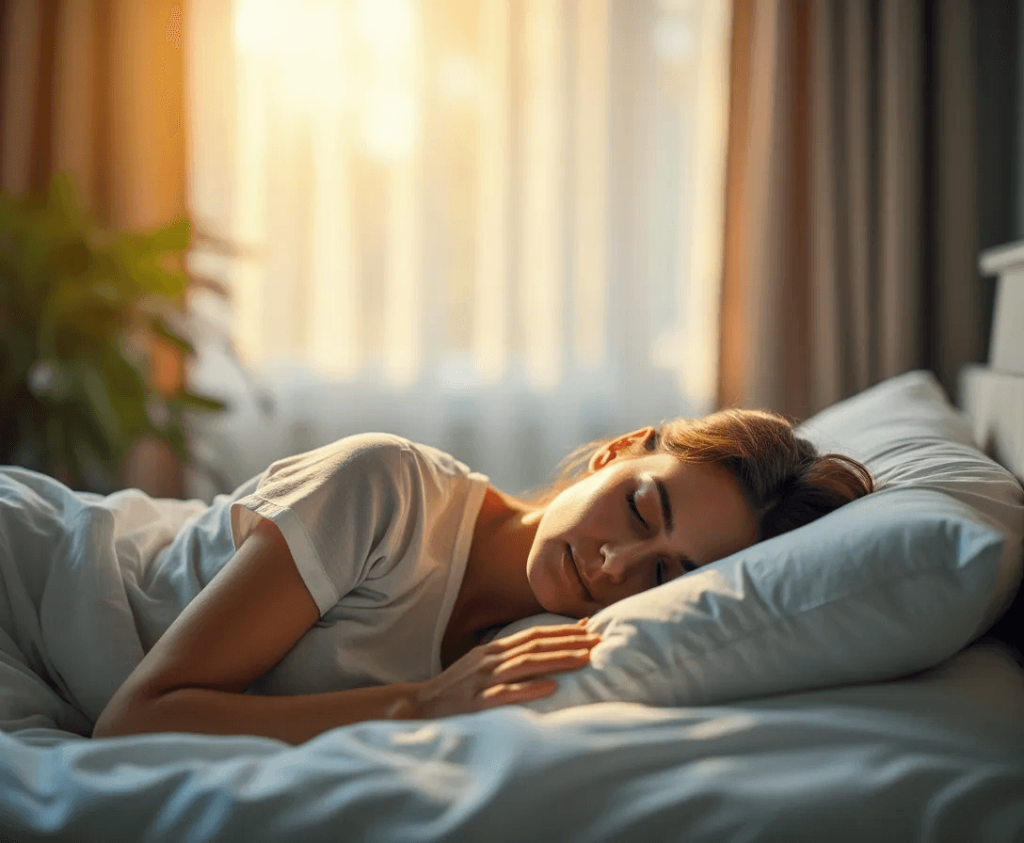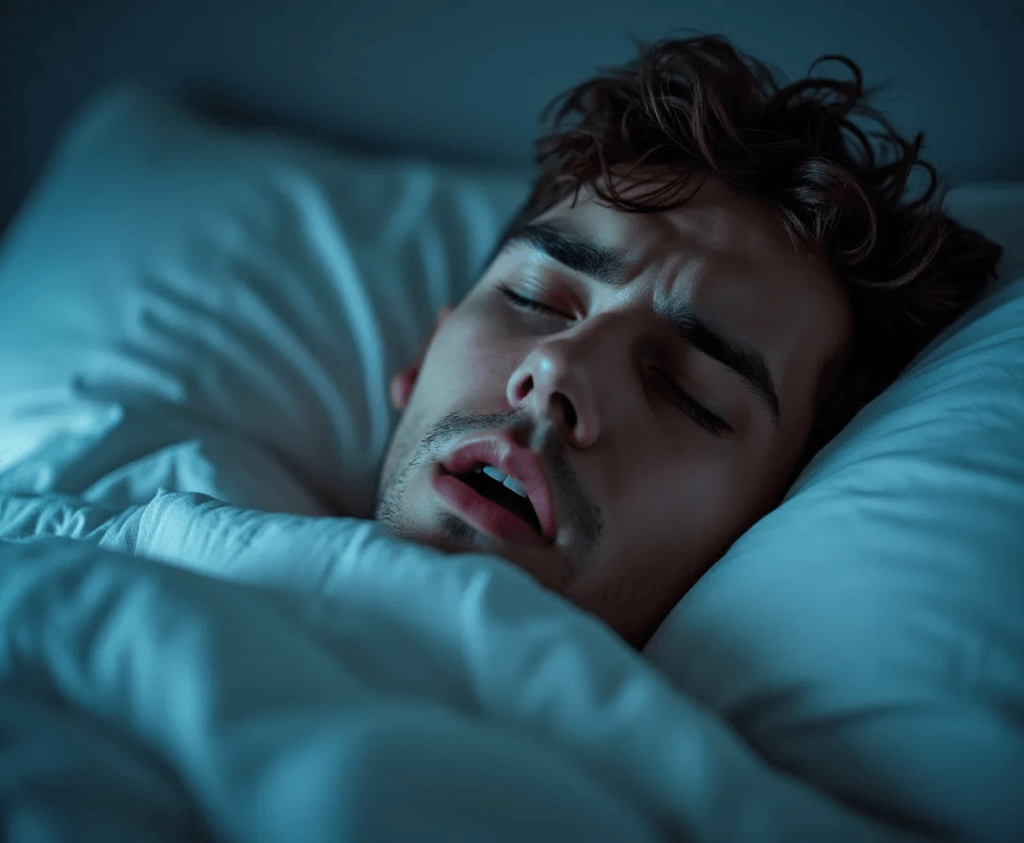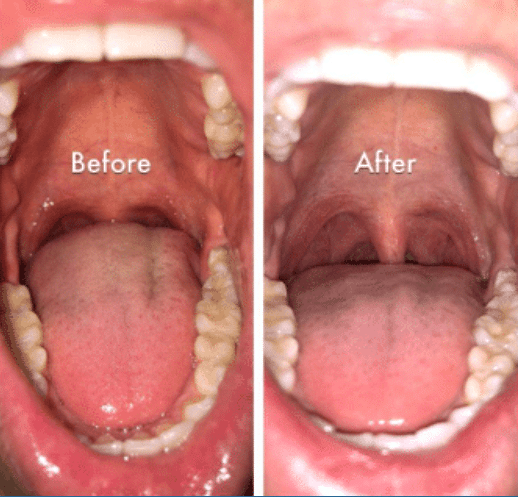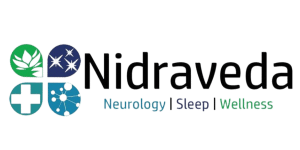Copyright © 2024 Nidraveda, All rights reserved. Powered by Infinisolve.
- 4358 Lockhill Selma Rd, Suite 106, Shavano Park, TX 78249
- Tel: 210.686.5000
- Fax: 210.239.5060
Sleep
Sleep Medicine

Are You Sleepy?
Sleep Medicine is a field of medicine that is multi-disciplinary and deals with all disorders of sleep including obstructive sleep apnea syndrome, insomnia, obesity hypoventilation syndrome, narcolepsy, restless legs syndrome, hypersomnia, nocturnal epilepsy, and night terrors.
Dr. Bhandari’s practice is different than most sleep medicine practices, as he dedicated a year to fellowship training in Sleep Medicine under the supervision of world-class faculty.
The importance of Sleep Medicine has be underappreciated in the past few decades. It has only recently gained its proper recognition. Poor sleep has been linked to multiple conditions; all of which can be potentially improved with better sleep quality. Dr. Bhandari not only helps to tease out what is affecting your sleep but also how to treat it. A few links and guides are linked below for your convenience.
What Is A Polysomnogram (PSG)?
A Guide to Sleep Conditions
Who Actually Interprets A PSG?
Dental Devices for Sleep Apnea?
What Is A Polysomnogram (PSG)?
A PSG – colloquially called a sleep study, is an overnight study designed to monitor and record multiple channels in reference to sleep. You may need a sleep study if you gasp or choke during sleep, snore, wake up tired, have trouble falling or staying asleep, have mood swings, take daytime naps, feel sleepy during the daytime, and/or have morning headaches. If you have these symptoms, it is best to speak with a sleep specialist.
A Guide to Sleep Conditions
Who Actually Interprets A PSG?
- Dr. Bhandari goes through every epoch (30 second page) of the sleep study to make sure the diagnosis made is accurate as possible. This, unfortunately, is not true for every sleep specialist where sometimes a sleep technologist creates a report without the doctor reviewing the data. Here at Nidraveda, the notion is echoed that patients always come first.
Dental Devices for Sleep Apnea?
- At Nidraveda, we offer a range of effective treatment options for sleep apnea, including custom-fitted dental devices like the Mandibular Advancement Device (MAD). The MAD works by gently moving the lower jaw forward to keep the airway open, reducing snoring and sleep apnea episodes. This non-invasive solution is ideal for patients with mild to moderate obstructive sleep apnea. Our experienced Dentist, Dr. Hwang, specializes in fitting these devices to ensure comfort and optimal results. If you’re seeking an alternative to CPAP therapy, schedule a consultation to explore how a MAD could benefit you.

FAQ
- Sleep apnea can be caused by various factors, including obesity, anatomical features (such as a thick neck, enlarged tonsils, or a deviated septum), age, family history, and lifestyle factors like smoking, alcohol consumption, and sedative use.
- Diagnosis typically involves a comprehensive evaluation, including a detailed medical history, a physical exam, and possibly a sleep study (polysomnography) to monitor sleep patterns, breathing, and oxygen levels during sleep.
- Common symptoms include loud snoring, episodes of breathing cessation during sleep, gasping or choking sensations while sleeping, excessive daytime sleepiness, irritability, mood swings, and difficulty concentrating.
Yes, sleep apnea can be treated through various methods, including lifestyle modifications, CPAP therapy, oral appliances, and innovative treatments like Nightlase therapy. The treatment approach depends on the severity and type of sleep apnea.
- Continuous Positive Airway Pressure (CPAP) therapy is a common treatment for moderate to severe sleep apnea. It involves using a machine that delivers a constant stream of air through a mask, keeping the airway open during sleep.
- Nightlase therapy is a non-invasive laser treatment that helps alleviate symptoms of sleep apnea and snoring by tightening the tissues in the throat, improving airflow and reducing airway collapsibility.
- Yes, untreated sleep apnea can lead to serious health complications, including high blood pressure, cardiovascular disease, diabetes, stroke, and increased risk of accidents due to excessive daytime sleepiness.
- Lifestyle changes such as losing weight, quitting smoking, avoiding alcohol, and sleeping on your side can significantly reduce the severity of sleep apnea symptoms and improve overall sleep quality.
- Yes, children can have sleep apnea, often caused by enlarged tonsils or adenoids. Symptoms may include loud snoring, restless sleep, and behavioral issues. A pediatric sleep specialist can provide an appropriate diagnosis and treatment plan.
- If you have risk factors or symptoms of sleep apnea, it is recommended to discuss screening with your healthcare provider. Regular follow-ups may be necessary to monitor treatment effectiveness, especially if you have been diagnosed with the condition.
- Yes, sleep apnea can significantly impact mental health, contributing to conditions such as anxiety and depression due to chronic sleep deprivation and the stress of managing the condition.
- If you suspect you have sleep apnea, it is essential to schedule an appointment with a healthcare provider for an evaluation. They may recommend a sleep study to confirm the diagnosis and discuss appropriate treatment options tailored to your needs.
Sleep Apnea and Snoring
Understanding Sleep Apnea and Snoring
Sleep apnea is a common but serious sleep disorder characterized by repeated interruptions in breathing during sleep. These interruptions can last from a few seconds to minutes and may occur 30 times or more an hour. Individuals with sleep apnea often experience daytime fatigue, irritability, and difficulties concentrating due to disrupted sleep cycles.
Types of Sleep Apnea:
- Obstructive Sleep Apnea (OSA): The most prevalent form, OSA occurs when the throat muscles intermittently relax and block the airway during sleep.
- Central Sleep Apnea (CSA): This less common type occurs when the brain fails to send the appropriate signals to the muscles that control breathing.
- Complex Sleep Apnea Syndrome: Also known as treatment-emergent central sleep apnea, this condition is a combination of OSA and CSA.
Symptoms of Sleep Apnea:
- Loud snoring (often reported by bed partners)
- Episodes of breathing cessation during sleep
- Gasping or choking sensations during sleep
- Excessive daytime sleepiness
- Difficulty concentrating and mood changes
The Impact of Snoring:
Snoring is often associated with sleep apnea but can also occur independently. It occurs when airflow through the mouth and nose is partially obstructed during sleep, leading to vibrations of the throat tissues. While snoring may be a nuisance for bed partners, it can also indicate underlying health issues that require attention.
Treatment Options:
At Nidraveda, we offer a range of solutions for managing sleep apnea and snoring, including:
- Nightlase Therapy: A non-invasive laser treatment that helps reduce the symptoms of snoring and sleep apnea by tightening the tissues in the throat, leading to improved airflow.
- Lifestyle Modifications: Weight loss, positional therapy, and avoiding alcohol can significantly reduce symptoms for many patients.
- Continuous Positive Airway Pressure (CPAP) Therapy: For moderate to severe cases of sleep apnea, CPAP therapy is often recommended to keep the airway open during sleep.

FAQs on Common Sleep Issues
Insomnia is the inability to fall asleep or stay asleep, leading to daytime fatigue and mood disturbances. The main types include:
- Acute Insomnia: Short-term and often related to stressful events.
- Chronic Insomnia: Long-term, lasting three months or longer, often associated with underlying health conditions.
Common causes include stress, anxiety, depression, certain medications, caffeine or alcohol consumption, irregular sleep schedules, and environmental factors like noise or light.
Improving sleep hygiene involves establishing a regular sleep schedule, creating a comfortable sleep environment, limiting caffeine and screen time before bed, engaging in relaxing activities, and avoiding heavy meals close to bedtime.
RLS is a neurological disorder characterized by an uncontrollable urge to move the legs, often accompanied by uncomfortable sensations. Symptoms typically worsen during periods of inactivity and can significantly disrupt sleep.
Diagnosis is based on the patient’s medical history, reported symptoms, and sometimes a physical exam to rule out other conditions. No specific test exists, but blood tests may be performed to check for iron deficiency or other underlying issues.
Narcolepsy is a chronic sleep disorder characterized by excessive daytime sleepiness and sudden sleep attacks. Symptoms may include cataplexy (sudden loss of muscle tone), sleep paralysis, and vivid hallucinations during sleep onset or awakening.
Treatment often includes stimulant medications to promote wakefulness during the day, as well as lifestyle adjustments, such as scheduled naps and maintaining a consistent sleep schedule to manage symptoms.
Circadian rhythm disorders occur when the body’s internal clock is misaligned with the external environment, affecting sleep timing. Common types include Delayed Sleep Phase Disorder and Shift Work Disorder, impacting sleep quality and overall health.
Management may involve light therapy to reset the internal clock, melatonin supplementation, maintaining consistent sleep and wake times, and avoiding bright light exposure in the evening.
Frequent nightmares can indicate stress, anxiety, or trauma. If they disrupt sleep or cause distress, it’s advisable to consult a healthcare provider or therapist for evaluation and possible treatment options, including cognitive-behavioral therapy.
Other Common Sleep Issues
1. Insomnia
Insomnia is the inability to fall asleep or stay asleep, resulting in daytime fatigue and mood disturbances. It can be caused by stress, anxiety, medical conditions, or certain medications. Treatment may involve cognitive behavioral therapy, lifestyle changes, or medication management.
2. Restless Legs Syndrome (RLS)
RLS is characterized by an uncontrollable urge to move the legs, typically accompanied by uncomfortable sensations. Symptoms usually worsen during periods of inactivity and improve with movement. Management may include lifestyle changes, medications, and leg massages.
3. Narcolepsy
Narcolepsy is a chronic sleep disorder that causes overwhelming daytime drowsiness and sudden sleep attacks. Individuals may experience cataplexy (sudden loss of muscle tone), sleep paralysis, and hallucinations. Treatment often includes stimulant medications and lifestyle adjustments.
4. Sleep Disorders Related to Circadian Rhythm
Circadian rhythm disorders, such as delayed sleep phase disorder and shift work disorder, affect the body’s internal clock and can lead to difficulty sleeping at desired times. Treatment strategies may involve light therapy, melatonin supplementation, and sleep hygiene practices.
Our Laser Solution: Nightlase
Non-Invasive and Convenient: Nightlase is a non-surgical, quick treatment that requires no anesthesia and involves minimal discomfort, allowing patients to resume normal activities immediately.
Effective Symptom Relief: The therapy significantly reduces snoring and improves airway function, leading to better sleep quality for both patients and their partners.
Long-Lasting Results: Many patients experience sustained improvements in sleep quality for several months, enhancing overall well-being and reducing the risk of associated health issues.
How Nightlase Therapy Helps Open Up the Airway
Nightlase therapy utilizes a non-invasive laser technique to target and treat the soft tissues in the throat that can contribute to airway obstruction during sleep. Here’s how it works to improve airway function, often resulting in a shift from Class 4 (severe obstruction) to Class 1 (minimal obstruction) in terms of airway classification:
The laser energy used in Nightlase therapy stimulates the collagen in the soft tissues of the throat, causing them to tighten. This tightening reduces the likelihood of the tissues collapsing or obstructing the airway during sleep.
By strengthening the tissues, Nightlase improves the structural support of the airway. This enhanced support allows for better airflow, reducing the incidence of apneas (breathing interruptions) and hypopneas (shallow breathing).
The laser treatment can also help reduce inflammation in the airway tissues, further promoting clear passages for airflow. This is particularly beneficial for individuals with swollen or relaxed throat tissues, which can contribute to obstructive sleep apnea.

Classification Improvement
Class 4 Airway
Class 1 Airway
Characterized by significant airway obstruction, where the soft tissues may collapse substantially, leading to severe sleep apnea and frequent disruptions during sleep.
Represents an unobstructed airway with minimal to no collapse of the soft tissues, allowing for normal, unimpeded breathing during sleep.
By effectively tightening and supporting the airway structures, Nightlase therapy can facilitate this transition from a Class 4 to a Class 1 airway, significantly improving overall sleep quality and reducing the risks associated with obstructive sleep apnea.
Nightlase therapy offers a promising solution for individuals struggling with snoring and sleep apnea, providing effective, non-invasive relief. If you’re seeking a way to improve your sleep quality and overall health, consider discussing Nightlase therapy with one of our providers to explore how it can benefit you.
Are You at Risk for Sleep Apnea? Take Our Quick Assessment!
Sleep apnea is a serious condition that can significantly impact your health and well-being. If you often feel tired during the day, struggle with snoring, or have difficulty staying asleep at night, you may be experiencing symptoms of sleep apnea.
Don’t wait until it affects your quality of life! Our interactive Sleep Apnea Risk Assessment is designed to help you identify your risk level in just a few minutes. Answer simple questions about your sleep habits and receive personalized feedback that can guide your next steps toward better sleep and improved health.
Ready to take the first step toward a restful night? Complete the assessment below!
Interactive Sleep Apnea Risk Assessment
Schedule online. It's easy, fast and secure.
Visit Us
-
4358 Lockhill Selma Road, Suite 106,
Shavano Park, TX 78249 - contact@nidraveda.com
- 210.686.5000
Quick Links
Menu
Business Hours
M – Th: 9am – Noon & 1pm – 5pm
F – 8am – Noon & 1pm – 5pm
Lunch: Noon – 1pm
Saturday: Closed
Sunday: Closed
